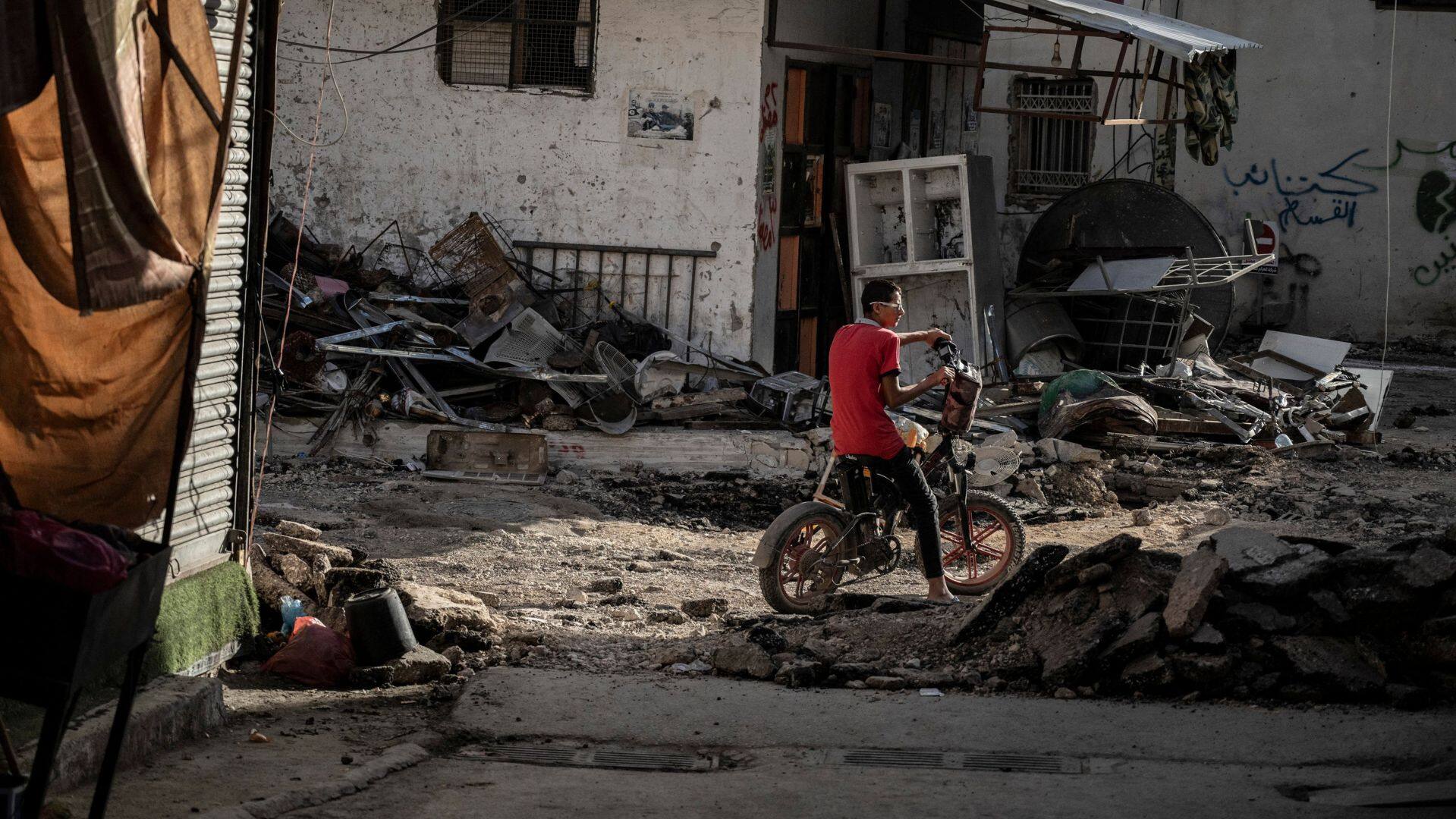Operations in Al-Shifa hospital complex — the largest inside the Gaza Strip — were suspended on Saturday after it ran out of fuel, a spokesperson for the Hamas-run Health Ministry said.
“As a result, one newborn baby died inside the incubator, where there are 45 babies,” said Ashraf Al-Qidra. He said another person was killed by an Israeli shell in intensive care.
Israel’s military, which residents said had been fighting Hamas gunmen all night in and around Gaza City where the hospital is located, did not immediately respond to a request for comment.
“The situation is worse than anyone can imagine. We are besieged inside the Al-Shifa Medical Complex, and the occupation has targeted most of the buildings inside,” Qidra said by telephone.
In a CBC interview, Dr. Ahmed Mokhallalati, head of the plastic surgery department at Al-Shifa, estimated that about 80 per cent of people who were sheltering inside the hospital have left over the last couple of days. He said there are still patients inside, including more than 50 who are in the ICU, some on ventilators.
The Israeli military has said Hamas militants who rampaged through southern Israel last month have placed command centres under Al-Shifa hospital and others in Gaza, making them vulnerable to being considered military targets.

Hamas has denied using civilians as human shields and health officials say growing numbers of Israeli strikes on or near hospitals put at risk patients, medical staff and thousands of evacuees who have taken shelter in and near their buildings.
“The occupation forces are firing on people moving inside the complex, which is limiting our ability to move from one department to another. Some people tried to leave the hospital and they were fired at,” Qidra said, adding that there was no electricity and no internet.
Gaza’s health system “is on its knees” and the situation on the ground “is impossible to describe,” World Health Organization director general Tedros Adhanom Ghebreyesus told an emergency meeting of the UN Security Council on Friday.
A perilous journey south
Day after day, thousands more people in northern Gaza are scrambling to get to a place of greater safety as intense fighting rages there between Israel and Hamas. Civilians are streaming out of the northern part of the territory, making the journey south whatever way they can — many on foot, travelling with family in tow.
There are clear dangers for people staying put in northern Gaza, but they also face risks in travelling south — not only during the journey itself, but also in finding shelter and staying out of harm’s way once they get to their destination.
Featured VideoThere was an emotional reunion at Toronto’s Pearson Airport Friday, as a father welcomed his newborn baby and wife to Canada from Gaza. But, many other families are worried about loved ones still stuck behind the Rafah border crossing.
Conflict erupted in Gaza in the wake of a surprise cross-border attack Hamas launched across parts of southern Israel nearly five weeks ago.
In response, Israel declared war and has unleashed a campaign involving airstrikes and a ground offensive, with the goal of dismantling the Islamist militant group and its infrastructure.
The resulting death toll has been immense, with thousands of civilians killed and at least two-thirds of Gaza’s 2.3 million people internally displaced within the besieged enclave.
As of Friday, officials from the Hamas-run Health Ministry in Gaza say more than 11,000 people have died in the territory since Oct. 7. In Israel, the Foreign Affairs Ministry revised the Israeli government’s figure that some 1,400 people had been killed — Canadians among them — and now says the number stands at about 1,200. As well, some 240 people were taken hostage after the initial Hamas attack.
Featured VideoAs the war in Gaza rages, Palestinians in the West Bank say they feel increasingly boxed in by Israel’s occupation. Military raids and settler violence have all intensified since the Hamas attacks of Oct. 7.


